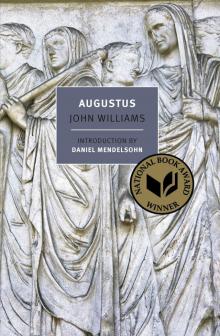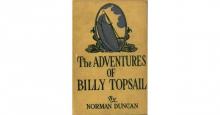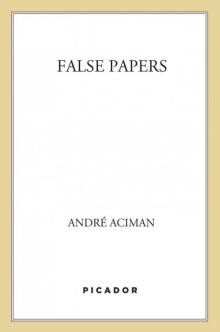Augustus


Author: John Williams
Category: Fiction
Published: a long time ago
Series:
View: 299
Read OnlineWinner of the 1973 National Book Award
In Augustus, the third of his great novels, John Williams took on an entirely new challenge, a historical novel set in classical Rome, exploring the life of the founder of the Roman Empire, whose greatness was matched by his brutality. To tell the story, Williams also turned to a genre, the epistolary novel, that was new to him, transforming and transcending it just as he did the western in Butcher's Crossing and the campus novel in Stoner. Augustus is the final triumph of a writer who has come to be recognized around the world as an American master.
"[In Augustus,] John Williams re-creates the Roman Empire from the death of Julius Caesar to the last days of Augustus, the machinations of the court, the Senate, and the people, from the sickly boy to the sickly man who almost dies during expeditions to what would seem to be the ruthless ruler. He uses an epistolary, polylogic format, and in the end all these voices, like a collage, meld together around the main character. Monologue becomes action, but action never becomes character. Instead, an image of brutality questions its own origins. Read it in conjunction with Robert Graves's more flamboyant Claudius and Claudius the God, Hermann Broch's * The Death of Virgil, and Marguerite Yourcenar's Memoirs of Hadrian*." —Harold Augenbraum, Executive Director of the National Book Foundation
In Augustus, the third of his great novels, John Williams took on an entirely new challenge, a historical novel set in classical Rome, exploring the life of the founder of the Roman Empire, whose greatness was matched by his brutality. To tell the story, Williams also turned to a genre, the epistolary novel, that was new to him, transforming and transcending it just as he did the western in Butcher's Crossing and the campus novel in Stoner. Augustus is the final triumph of a writer who has come to be recognized around the world as an American master.
"[In Augustus,] John Williams re-creates the Roman Empire from the death of Julius Caesar to the last days of Augustus, the machinations of the court, the Senate, and the people, from the sickly boy to the sickly man who almost dies during expeditions to what would seem to be the ruthless ruler. He uses an epistolary, polylogic format, and in the end all these voices, like a collage, meld together around the main character. Monologue becomes action, but action never becomes character. Instead, an image of brutality questions its own origins. Read it in conjunction with Robert Graves's more flamboyant Claudius and Claudius the God, Hermann Broch's * The Death of Virgil, and Marguerite Yourcenar's Memoirs of Hadrian*." —Harold Augenbraum, Executive Director of the National Book Foundation
 The Black Dwarf
The Black Dwarf Sun Tzu and the Maiden Army
Sun Tzu and the Maiden Army The Adventures of Billy Topsail
The Adventures of Billy Topsail Divergent
Divergent Nebraska
Nebraska A Farewell to Arms
A Farewell to Arms False Papers
False Papers I Love You I Hate You
I Love You I Hate You